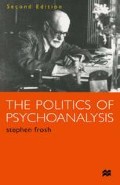Abstract
The view that each individual possesses a fundamental core of selfhood from which all her or his attributes arise is a dominant notion in western perceptions of what constitutes basic humanity. In a general way it is reflected in the philosophy of the ‘cogito’ (‘I think therefore I am’), that at the centre of the human subject is a rational source of meanings (wishes, desires, attitudes, and so on), an idea that is common in religious formulations of personal responsibility and which is also found throughout mainstream psychology. It is precisely in challenging this notion of the existence within each of us of a central, directing consciousness that psychoanalysis is most revolutionary. Freud’s formulation of the unconscious makes all human behaviour and experience comprehensible only through reference to ‘another site’ than consciousness. In Freudian terms, not only is thinking a complex phenomenon which must itself receive explanation (the concepts of primary and secondary process being of relevance here), but it is also illegitimate to assume that psychological functioning is unified in any meaningful sense. Psychoanalysis argues that behind the experience that we may have of ourselves as coherent psychological beings there exists a basic split in the psyche, reflected in the way some ideas are conscious or preconscious while others are radically unconscious. We may think we choose what to say, select what to do (the ‘we’ here being our conscious, articulated selves), but in fact we are chosen, or at least our choices are constrained by forces which lie outside conscious control or easy access. It is only through recognising the existence of such unconscious forces and using them as explanatory items that human behaviour and experience become at all plausible; knowing that they exist does not, however, make us easily able to control or even recognise them in ourselves.
Preview
Unable to display preview. Download preview PDF.
Copyright information
© 1999 Stephen Frosh
About this chapter
Cite this chapter
Frosh, S. (1999). Instincts and Objects. In: The Politics of Psychoanalysis. Palgrave, London. https://doi.org/10.1007/978-1-349-27643-1_5
Download citation
DOI: https://doi.org/10.1007/978-1-349-27643-1_5
Publisher Name: Palgrave, London
Print ISBN: 978-0-333-76344-5
Online ISBN: 978-1-349-27643-1
eBook Packages: Palgrave Religion & Philosophy CollectionPhilosophy and Religion (R0)

